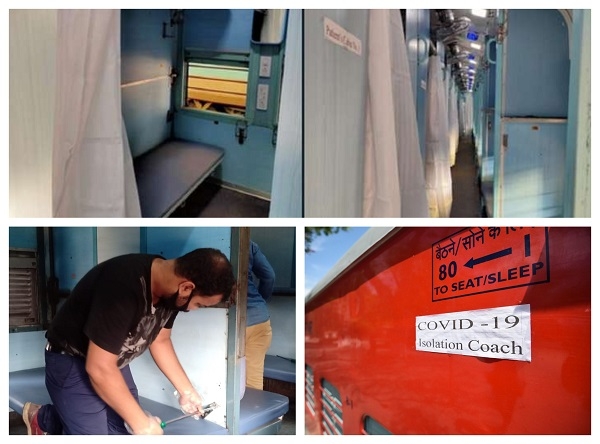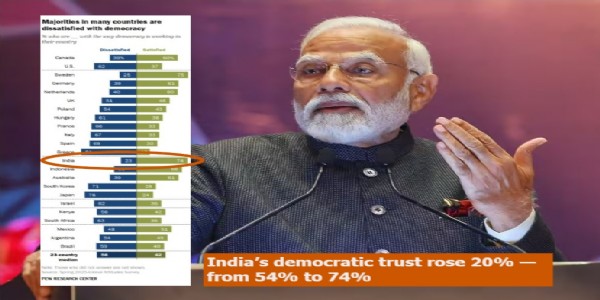Indian Railways modifies coaches into isolation wards for COVID-19 patients
Total Views | 17
New Delhi, March 31: In an initiative to combat the coronavirus pandemic in India, the Indian Railways is ready now to convert its 20,000 coaches into full-fledged quarantine wards for Coronavirus patients. There are five zonal railways who have already prepared a prototype for COVID-19 special coaches.

The 16 zones of the Indian Railways will first convert 5,000 coaches into isolation wards, further being prepared to scale up the numbers to as high as 20,000 if the need arises. The development comes as the number of confirmed cases of Novel Coronavirus (COVID-19) continues to surge in India so far. The work for modification of coaches has already started across various railway zones and five zones have already prepared prototypes for isolation or quarantine coaches.
"These modified 20,000 coaches can accommodate up to 3.2 lakh possible beds for isolation needs. Work on modification of 5,000 coaches, which are to be converted initially into quarantine/isolation coaches has already started," a statement from the Railway Ministry.
The decision was taken after discussions held with Armed Forces Medical Services, the medical department of various Zonal Railways, Ayushman Bharat, Ministry of Health and government of India. Five Zonal Railways have already prepared prototypes for the quarantine/ isolation coaches. However, only Non-AC ICF sleeper coaches are being planned to be utilized for conversion into quarantine and isolation coaches.
Indian Railway has also issued the directive to the rolling stock companies under its administration to start manufacturing sundry medical equipment at scale to aid the nation's fight to contain the pandemic.
Moreover, IRCTC is preparing food for millions of homeless people at major Railway stations of the country. IRCTC has opened its kitchens across the country. Apart from local administration, police, and RPF, food packets are being made available to the poor and laborers through NGOs. It supplies food for more than 20 lakh people daily through various stations, food plazas and online catering across the country.





